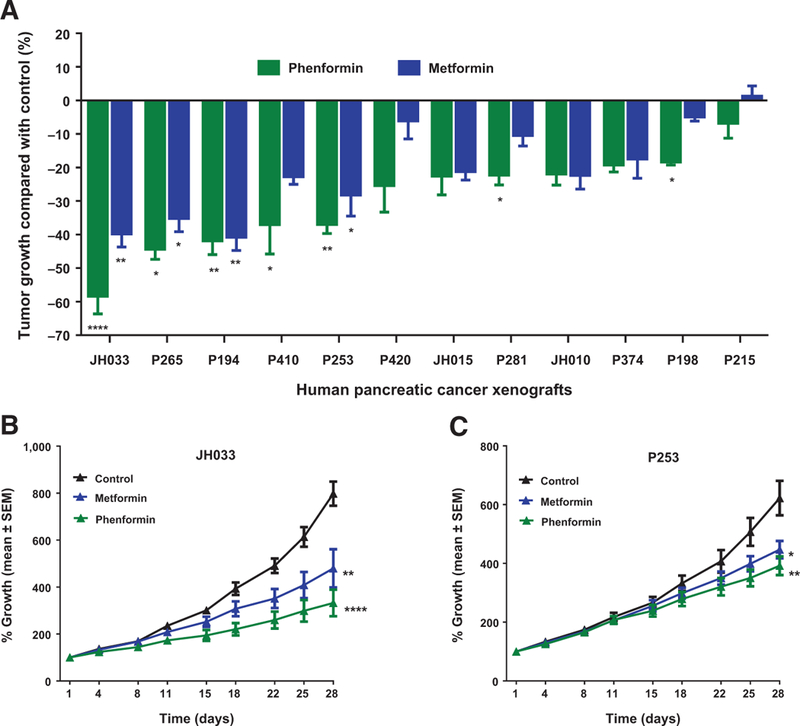Figure 3.

In vivo antitumor efficacy of the biguanides metformin and phenformin in human pancreatic cancer xenografts. Tumors from 12 PDXs were subcutaneously grown as flank tumors in mice. When tumors approached a size of approximately 150 mm3, animals were randomly assigned to receive vehicle or phenformin (50 mg/kg) or metformin (250 mg/kg) administered as once-a-day intraperitoneal injection for 4 weeks. Tumor size was monitored for 28 days. A, Antitumor efficacy of biguanides in 12 individual PDXs. Animals in the phenformin-treated group displayed better antitumor efficacy compared with metformin-treated animals. Phenformin treatment demonstrated tumor growth inhibition (ranging from 58.39% to 6.79%) in 12 PDXs; 7 of 12 PDXs (58.33%) showed statistically significant tumor growth inhibition when exposed to phenformin treatment compared with vehicle-treated animals. Metformin treatment demonstrated statistically significant tumor growth inhibition in 4 of 12 PDXs (33.33%). B and C, Tumor growth curves of two PDXs (JH033 and P253) sensitive to biguanides. In both xenografts, phenformin showed better tumor growth inhibition compared with metformin treatment, indicating the effectiveness of phenformin. Data, mean ± SEM; n = 7–10 tumors per group. ****, P < 0.0001; *, P < 0.01; *, P < 0.05.
